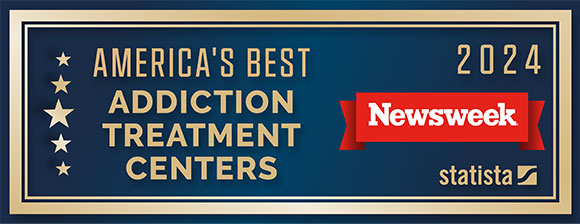Oro House Cocaine Addiction Treatment in Los Angeles, California is a holistic, non 12 step program in a luxury setting for cocaine dependence recovery.
Addiction can occur in many different forms. Most people are familiar with alcohol and prescription painkillers as common addictive substances, but some harder drugs are misused today even more than they were decades ago.
Cocaine addiction is a problem in the United States, and even though usage decreased from 2006 through 2014, it started going up in 2015 and has been increasing ever since.
In fact, overdose deaths involving cocaine use has increased every year since 2014 and reached 15,883 deaths in 2019 according to the National Institute on Drug Abuse (NIDA).


This number is expected to increase even more because cocaine has been mixed with fentanyl in recent years to make a cheaper and more potent combination that is also more deadly.
This leaves parents, friends, and family members wondering how to find help for someone they care about who might have an addiction to cocaine.
Below are answers to frequently asked questions about cocaine addiction, use, and treatment, to help those in need get help and make a lasting difference in their life to prevent them from doing more harm.
Do You Need Cocaine Addiction Treatment?
How Addictive Is Cocaine?
Cocaine is a very addictive substance that causes both a physical and psychological dependence, which can present problems during withdrawal. In addition, it is frequently combined with other substances, further complicating matters.
Cocaine is classified as a Schedule II drug, meaning it has a high potential for abuse and addiction. Schedule II substances do have some medical use, but the risk for dependence is high and they are considered dangerous if misused.
Cocaine is ingested a variety of ways. While some individuals have their personal preferences, it’s common to see methods that include:
- Snorting
- Smoking
- Injecting
Because cocaine raises dopamine levels, it leaves the user feeling relaxed and happy. Its use is fairly common for celebratory reasons, at least in the early stages of use for most people.
Unfortunately, many people turn to cocaine when going through a difficult time in their life, as it provides them with an escape from the pain and stress in their life.
Some people can take up to a year before becoming addicted to cocaine. The timeframe depends on how often they use, how much of the substance they take, and their preferred method of use.
It’s important to understand that when dealing with someone who feels tempted by the drug, it doesn’t always take a lot for addiction to set in and become a reality. Regardless of how a person chooses to use it, there’s no such thing as a safe amount when it comes to cocaine addiction, especially if it is unknowingly mixed with fentanyl.
If possible, find out how often a person is using it, how much they use each time, and how they are using it. Someone who uses more than several times a week is at serious risk for cocaine addiction.
It’s important to understand that if you or a loved one has an underlying issue, such as a combination of depression and addiction, this can make the drug even more difficult to stop using.
If this is the case, make it a point to get help right away, and avoid going down the path to an addiction that is difficult, but not impossible, to recover from.
Cocaine Addiction at a Glance
Cocaine addiction can happen to anyone, regardless of where they live or how old they are.
What was once classified as a street drug of the super-rich in metropolitan areas has found its way across all races and classes in the United States.
Professionals and young adults who turn to the drug often find themselves in a downward spiral.
This involves everything from coming up with the money to pay for their habit to losing family, friends, and loved ones because of their addiction.
Older individuals suffer too, with an increase in substance abuse problems found in the elderly.
Understanding that no one is safe from addiction is the first step to finding the right solution for recovery.

Cocaine Addiction Symptoms
Many people feel conflicted about how to help someone they care about recover from a substance use issue and how to begin talking to them. Knowing that any drug use is dangerous is only half the battle.
It’s crucial to understand how to recognize the symptoms of drug use, misuse, or addiction before approaching them to discuss the problem.
Some of the symptoms of cocaine addiction or even regular use may include:
- Easily agitated
- Overly excited
- A runny nose or frequent nosebleeds
- Weight loss
- More talkative than normal
- Persistently hyperactive
- Scattered thoughts and trouble focusing
These are some of the most obvious outward signs a person using, but they aren’t the only way to know if someone is addicted to cocaine.
Other signs of irregular habits or behavioral changes can be clues that something isn’t quite right.
Often times, personal habits change in a way that is unrecognizable to a person’s former self, such as once being meticulous in appearance but now rarely bathing or caring about grooming habits and personal hygiene.
Other signs of cocaine addiction worth paying attention to include:
- Financial problems, including asking family or friends for money
- Eating or sleeping less than normal
- Traces of white powder around the nose, on clothing, or found on countertops in the bathroom
- No longer taking pleasure in activities or hobbies they once loved
One or two of the above signs and symptoms might not add up to anything in particular, but if more than a few become habitual for prolonged periods of time, it may be a cause for concern and worth examining further.
Cocaine Withdrawal Symptoms
Going through cocaine withdrawal symptoms when trying to quit using can be a difficult experience for anyone with a substance use disorder. Withdrawal occurs whenever anyone attempts to stop using a substance they have developed a dependence or addiction to after using for prolonged periods of time.
While stopping cocaine use alone and unattended without the help of trained addiction professionals seems admirable, it makes going back to the drug even more tempting since quitting cold turkey can leave a person with uncomfortable withdrawal symptoms.
Cocaine withdrawal symptoms are not as dangerous or extreme as other substances such as alcohol, opioids, or benzos, however they can still make it difficult to stay on track and follow through with successfully stopping all use.
Cocaine withdrawal symptoms are usually more psychological than physical and can include many of the following:
- Severe anxiety
- Depression
- Paranoia
- Restlessness or inability to sleep
- Exhaustion and fatigue
- Suicidal thoughts or ideations
- Slowed thinking and trouble concentrating
- Sexual dysfunction
- Nightmares
- Intense cravings for cocaine
- Appetite problems
- Chills and muscle aches
These are some of the most common symptoms of cocaine withdrawal and can begin almost immediately after the last use of the drug. Many of these symptoms will fade away after a week to ten days after the last use, although some will continue for a long time, especially cravings for cocaine.
Personality changes from dependence and withdrawal could be persistent for some time and factors such as the amount, duration, and method of use will be contributing factors to the withdrawal timeline.
It is always recommended that people with a cocaine addiction seek help from trained professionals at an addiction treatment facility.
Named Best Luxury Malibu Rehab by Newsweek

Treatment for Cocaine Addiction
Cocaine addiction treatment isn’t limited to a one-size-fits-all method, and there is no magic pill for recovery. Instead, It’s crucial to look for a treatment facility that helps individuals work through the many issues associated with cocaine addiction.
Detox and completing the withdrawal process is necessary for anyone struggling to get clean and sober, although it can be a difficult part of the process. Because of this, it’s important to find a treatment facility that includes detox services as part of their treatment program.
While detox is an important first step, it’s necessary to consider additional treatment methods based on the needs of both the individual and the family.
Some treatment centers offer family programs that address how addiction affects everyone involved. These programs are indispensable because they examine how addiction affects the individual, their loved ones, root causes of the addiction, and rebuilding trust.
Although 12-step treatment programs, such as Narcotics Anonymous, remain popular for after-treatment, it’s often advised to combine these methods with non 12-step rehab treatment during initial treatment and detox.
This includes individual and group counseling, cognitive therapy, relapse prevention, and other holistic lifestyle therapies.
Combining different types of therapy helps to encourage the individual as they progress through recovery, making it more likely they’ll see how wonderful life can be without drugs.
This addresses deep-seated issues, such as abuse or depression, and motivates the individual to work past these problems. It also negates the need for going back to the drugs as a way to escape other problems.
The first step in helping someone recover for a healthy and drug-free life involves finding a caring community that wants to help, while offering a variety of treatment methods to choose from.
Oro House Cocaine Addiction Treatment in Los Angeles
Oro House Cocaine Addiction Treatment in Los Angeles, California offers an evidence-based, comprehensive recovery program for all types of addiction and mental health conditions.
For more than 10+ years, our Compassionate Care Model® of addiction treatment has helped our clients with all levels of treatment, from detox to sober living and aftercare support.
We begin with a medically supervised detox program at our facilities to safely overcome the cocaine withdrawal process.
Following detox, our 30 to 90-day treatment programs include the most successful evidence-based therapies for treating cocaine addiction including:
- Motivational and Cognitive Behavioral Therapies
- Relapse Prevention Therapy
- Family Program
- Dual Diagnosis Treatment for Depression, Anxiety, and PTSD
All of our treatment programs are individualized to provide support for professionals as well as young adults in a caring and non-judgmental luxury setting for a successful recovery.
We’ve won numerous awards, and have been selected by Newsweek as one of the Best Addiction Treatment Centers in the United States five years in a row – 2020, 2021, 2022, 2023, and 2024, and consistently ranked as best in California.
Oro House is licensed by the California Department of Healthcare Services (DHCS) and Joint Commission Accredited to ensure the highest level of safe and effective care for our clients.